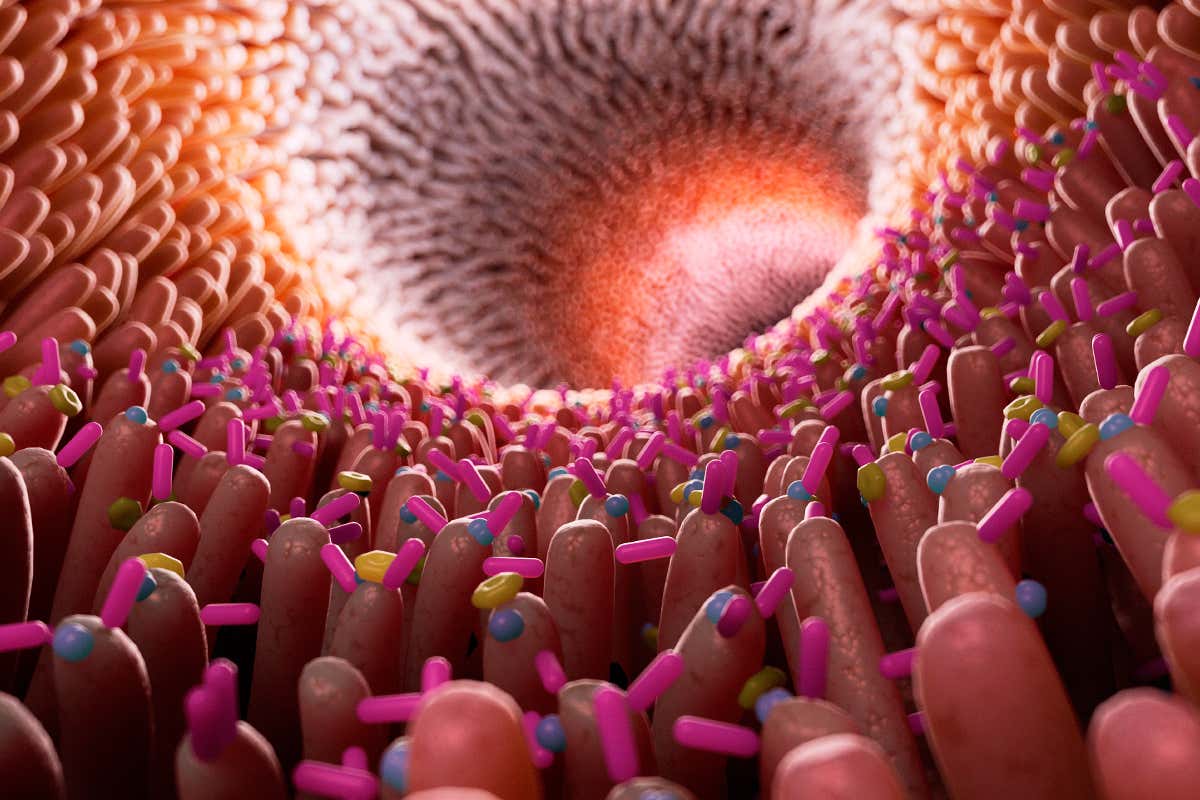Recently, a new study, whose findings appear in the Journal of Experimental Medicine explores the impact of gut bacteria in the treatment of cancerous tumors using lab mice models and concludes that these beneficial bacteria may play a fundamental role.
More specifically, the findings of the study suggest that particular types of gut bacteria may be able to help in cancer treatments such as immunotherapy by fortifying the digestive immunity in a person.
Previously, the bacteria present in the digestive tract, popularly referred to as gut microbiota or gut bacteria have been observed to have the ability to relieve symptoms of various health conditions.
For instance, some studies discovered that a species of the gut bacteria Bifidobacterium can help in relieving symptoms of health issues including chronic fatigue syndrome, psoriasis, and ulcerative colitis by changing the body’s immune response.
Additionally, research has also identified different combinations of gut bacteria, such as Bifidobacteria and Lactobacilli, to be effective in treating certain conditions.
RELATED: Breakthrough Research Identifies a Key Characteristic In Development of Dementia
The new research focuses on a species of Bifidobacteria, which has already been found to change immune response. Bifidobacteria not only has the ability to affect immunity but can also make their way into the cancerous growths.
Once they enter and are inside a particular tumor, these gut bacteria can trigger the wider immune system. This also boosts a commonly used cancer treatment known as CD47 blockade immunotherapy.
CD47 blockade immunotherapy is named after the protein CD47 which is present in the membranes of all cancerous cells in a tumor.
The primary role of the protein is to ward off “scavenger” immune cells, also called macrophages, that are responsible for destroying aggressive cell growth in the body by sending a signal.
Currently, there is ongoing research about CD47 and antibodies that can stop the signal sent by the protein and make cancer treatment more effective. The studies using lab animals have shown certain anti-CD47 treatments do show results.
Recently, the researchers have discovered the gut bacteria Bifidobacteria in the fecal matter of the mice who responded well to given anti-CD47 treatments.
To examine the role of the bacteria, researchers at the University of Chicago and the University of Texas gave mice antibiotics that killed gut bacteria to see whether it affected immunotherapy.
The researchers found that immunotherapy in mice stopped working as soon as they were given the antibiotics. On the other hand, giving probiotic supplements to mice who were not previously responding to their cancer treatment was certainly observed to respond.
Secondly, another effect noted by the researchers was that the bacteria Bifidobacteria triggered an immune pathway known as the STimulator of INterferon Genes or STING.
The leading author of the study, Prof. Ralph R. Weichselbaum, commented on findings, saying:
“Our results open a new avenue for clinical investigations into the effects of bacteria within tumors and may help explain why some cancer patients fail to respond to immunotherapy,”
The team stated that it hopes to further investigate in the future and concluded the study in the words “Given that Bifidobacterium is a commensal bacterium with low toxicity and low chance of survival in normal tissues, it can be a good tumor-targeting bacteria for clinical translation”


